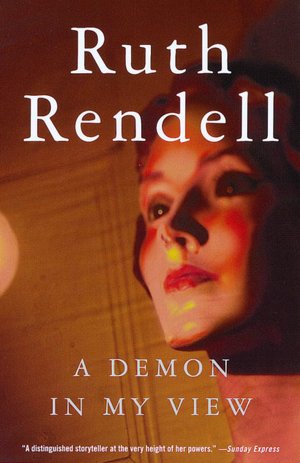The Yellow Wallpaper
Author: Charlotte Perkins Gilman
Pages: 60+
Description:
The Yellow Wallpaper is written as the secret journal of a woman who, failing to relish the joys of marriage and motherhood, is sentenced to a country rest cure. Though she longs to write, her husband and doctor forbid it, prescribing instead complete passivity.
My thoughts:
Okay, so this is a short story about a woman's obsession with a particularly hideous, yellow wallpaper and her descent into insanity. You many be saying to yourself: "Really? Well this doesn't sound that interesting". And I would then say, "Not so fast; this is the story about a depressed woman on rest cure and her obsession with the aforementioned wallpaper". Are you intrigued now? No?... Yeah, well I wasn't either. I mostly wanted to read this story because it's considered early feminist literature. And although I'm not an uber feminist, I read somewhere that this story is an exaggerated version of the author's own life experience. While the story may not resonate with me, it's always worth it to peek into the life experiences of others.
Considering the circumstances, I suppose I might get anxious too if I were forced to be confined to a small space that I didn't like. I might also be on edge if my efforts to communicate via journal or direct talks were forbidden or shrugged off. The same would apply if I suffered from post-partum depression. These are all legitimate reasons if you ask me...but the narrator's husband/doctor thought otherwise. Her husband represents the smothering dominance of paternalistic oppression and the imprisonment of the narrator is well documented throughout the text:
"John does not know how much I really suffer. He knows there is no reason to suffer, and that satisfies him".[Loc. 68-69]
"And I know John would think it absurd. But I must say what I feel and think in some way--it is such a relief!"[Loc. 163-64]
'Bless her heart' said he with a big hug, 'she shall be as sick as she pleases! But now let's improve the shining hours by going to sleep, and talk about it in the morning![Loc. 206-7]
In all honesty, I pondered the yellow color of the wallpaper more than anything else...Yellow is yellow. Happy, bright...regal in some shades. The narrator makes it a point to describe over and over again the pattern of the wallpaper: "One of those sprawling flamboyant patterns committing every artistic sin". But I think the wallpaper is bothersome to the narrator because it represents everything she cannot be or cannot do. The 'ugly' wallpaper is free to be ugly. It's free to be confusing and absurd...and I'm going to regress back to my color theory now; yellow is happiness. Yellow is enlightenment and energy. The narrator has not one of those things.
However, the story does take its turn and the narrator begins to shift her attitude from hateful to suspicious and then to intrigued by the wallpaper. The yellow wallpaper has become a secret or puzzle that only she can unlock. While many might see her obsession as her descent into irrationality, I see it more as her finally making good of a bad situation.
"There are things in that paper that nobody knows but me, or ever will"[Loc. 184]
"Life is very much more exciting than it used to be. You see I have something more to expect, to look forward to, to watch. I really do eat better, and am more quiet than I was". [Loc. 252-53]
I know this sounds odd. But rather than wait for her husband to give her the time of day, she uses her own creativity and imagination to transport herself from that place. But don't get me wrong, overbearing male dominance is no bueno, and this story does reflect a struggle for self in a male-dominated society.
I appreciated that is was a short read, but I didn't like the diary entry writing style, even though I get why it was used. And I only had one hang up about the ending...that is to say, I'm not sure what happened. Did her husband just faint? Is that it?
The Yellow Wallpaper
Three stars






